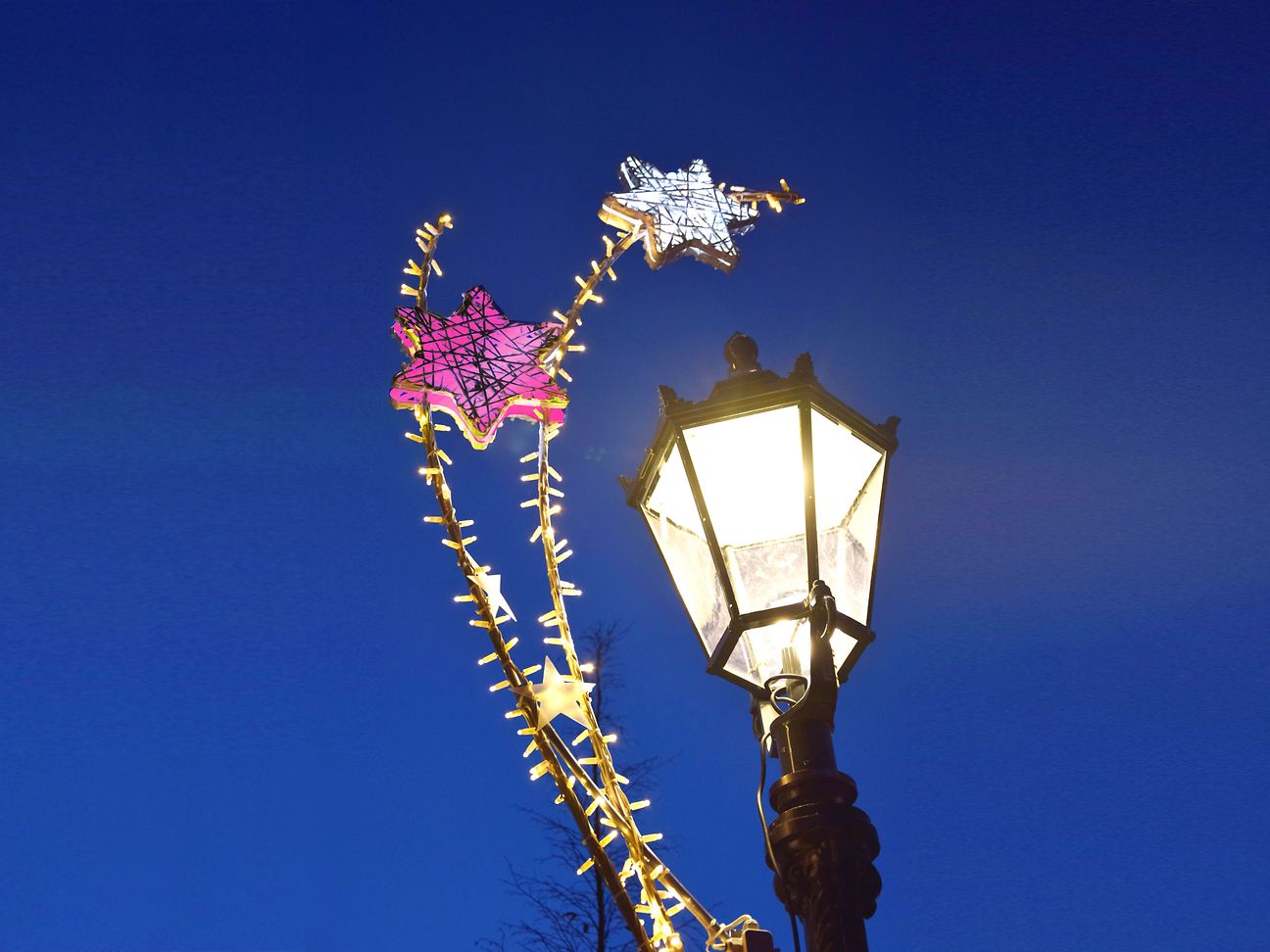

Deutsche Telekom connects street lighting in the city of Monheim am Rhein
- Remote controlled luminaries save energy
- Lighting failures are reported automatically
- Better quality of life and higher location attrition
Smarter street and twinkle lights in one of Germany’s picturesque cities along the river Rhine: The city of Monheim am Rhein, in cooperation with Deutsche Telekom and the town‘s subsidiary Elektrizitäts- und Gasversorgung GmbH (MEGA), is using intelligent street lighting and is thus taking another step on its way to a fully connected municipality. The street lights in the heart of the city require less energy, are dimmable and remote-controlled, and will report failures automatically. And the new LED Christmas decoration can also be remotely controlled via the light management.
In the pilot project, the heads of the street lanterns were replaced and refitted with modern, economical LED technology. The new luminaries are optically the same as the previous old-town lanterns, but the power consumption per lantern drops from 70 to only 22 watts per hour - a saving of nearly 70 per cent. The city saves additional energy in the night when the traffic has come to a rest. The lamps can also be dimmed from a distance via the light management provided by Deutsche Telekom. The intelligent street lights also facilitate MEGA's maintenance of the light bulbs: as the street lighting is networked, failures of these can in future be reported automatically.
On the way to Smart City
Under the motto "Monheim 4.0" the modern town on the Rhine is a pioneer in the area of connected city. For example, there is already an online reporting tool for local issues such as pot holes or vandalized street signs, tablets for school lessons, a platform for discussion and voting on household proposals, as well as numerous WLAN hotspots in the urban area. "We will be the first city nationwide to complete broadband expansion by the end of 2018," says Daniel Zimmermann, Mayor of Monheim. "With the digital expansion, we are increasing the quality of life of our inhabitants and Monheim’s attractiveness as a location for business."
Deutsche Telekom supports cities through its experience with smart city applications in order to convert digital visions into reality. In many cities the population increases, but at the same time their budget becomes lower. With IoT solutions, municipal administrations will in future be able to cope with challenges such as increasing traffic, the need for more energy and drinking water, and additional requirements for waste and waste disposal. Throughout Europe, Deutsche Telekom has already launched smart city pilot projects for parking management, mobility management, intelligent street lighting, public safety and waste management.
About Deutsche Telekom: Deutsche Telekom at a glance
About
